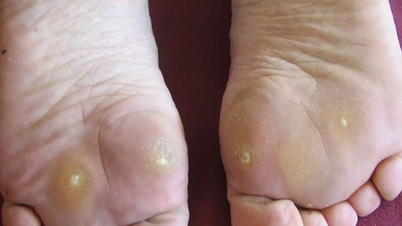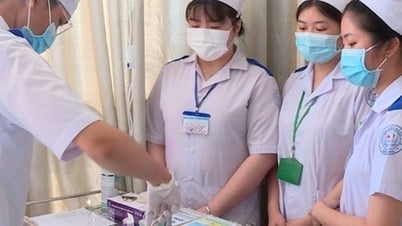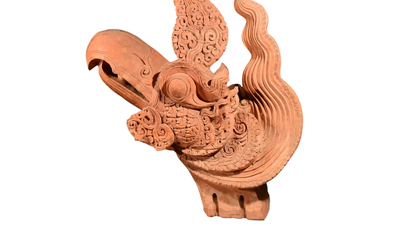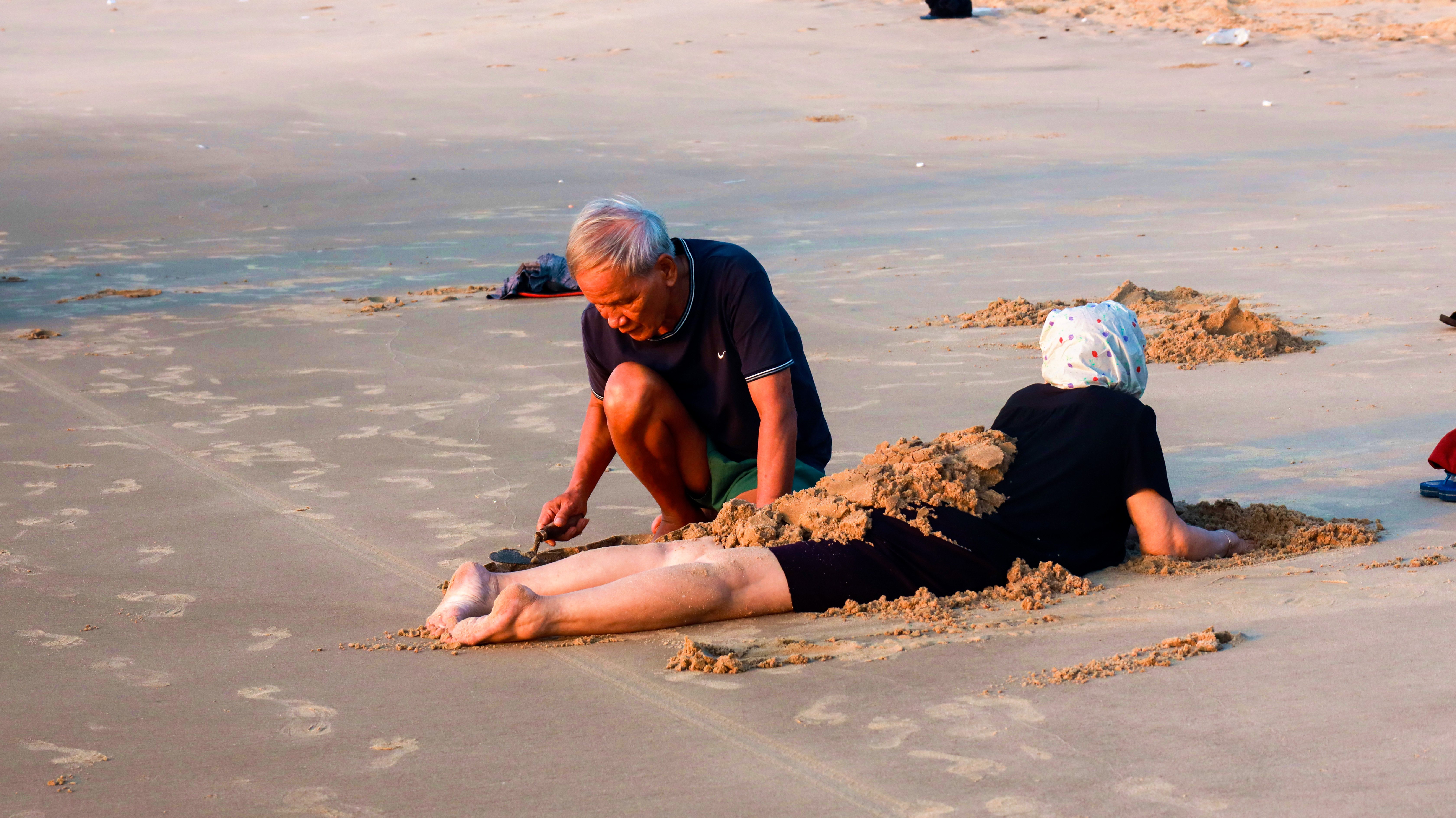After 37 days on ECMO and nearly 50 days on a ventilator with high doses of oxygen, on January 3, the patient was discharged from the hospital to the joy of doctors and family.
According to medical records, the 37-year-old female patient in Hanoi contracted the flu on October 27 with symptoms of fever, sore throat, cough, runny nose, and body aches.
The patient self-treated with antipyretics and corticosteroids (medrol 16mg/day). After 3 days, the condition did not improve, high fever persisted with difficulty breathing, required oxygen then mechanical ventilation.

The patient self-administered anti-inflammatory corticosteroids and developed severe pneumonia.
The doctor directly treating the patient, Master, Doctor Nguyen Ba Cuong - Intensive Care Center, Bach Mai Hospital shared: When entering the Center, the patient's condition was very serious, with continuous high fever, severe septic shock, very low blood oxygen, white opacity in both lungs on the chest X-ray, and a positive rapid test for Influenza B.
What is special is that although infected with flu, the bacterial infection on the test is very high, accompanied by a severe decrease in white blood cell count to 0.750 G/L (Normal 4.0-10.0 G/L).
At the Intensive Care Center - Bach Mai Hospital, the patient was treated with antibiotics, antivirals, mechanical ventilation and blood filtration.
Bronchoscopy showed multiple pseudomembranes filling the bronchi on both sides. PCR test of bronchial fluid: Influenza B with Staphylococcus aureus infection.
Doctor Nguyen Ba Cuong said: The symptom of leukopenia is very common in patients with viral infections, especially influenza and dengue fever (2 epidemics that are widely circulating in Vietnam), which reduces the body's resistance.
Corticosteroids are anti-inflammatory drugs but have the side effect of reducing the body's resistance. Overuse of these drugs in patients with viral infections increases the risk of secondary infections, especially drug-resistant bacteria.
The patient then did not respond to resuscitation treatment and had to undergo emergency ECMO intervention. During the 37 days of ECMO, nearly 50 days of mechanical ventilation with high-dose oxygen, due to decreased resistance, the patient was very susceptible to microorganisms in the hospital and had to be treated with many courses of antibiotics and antifungals.
Doctors had to consult many times within the department and interdisciplinary departments to promptly come up with appropriate treatment regimens for each disease progression.
And on January 3, after more than 2 months of intensive care, the patient was discharged from the hospital to the joy of doctors and family.
However, subsequent lung damage may persist and requires long-term monitoring.
Doctor Nguyen Ba Cuong warns: Corticoid abuse occurs frequently in Vietnam in the treatment of influenza and bone and joint diseases (mixed in traditional medicine ingredients of unknown origin).
According to doctors, drugs must be used according to the correct indications and dosage. Indiscriminate use reduces resistance and makes it easy to get infected with bacteria.
During the flu and dengue fever outbreak this year, the Intensive Care Center received many critical cases of viral infection. What is special about these cases is that in addition to the serious problems caused by viral infection, the patients were also infected with multi-drug resistant bacteria (staphylococcus aureus, Pseudomonas aeruginosa, pneumococcus...) leading to septic shock and multiple organ failure.
Some cases require long-term ECMO intervention, although survival is possible but also leaves long-term damage.
Therefore, when having health problems, people should see a doctor and use medicine as prescribed. Do not buy and use medicine on your own or buy according to old prescriptions, following the advice of relatives and acquaintances because the consequences will be unpredictable.
Source



































































































Comment (0)